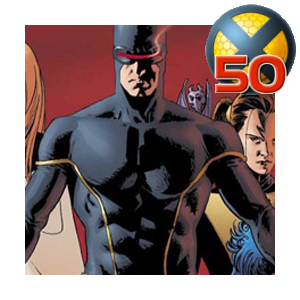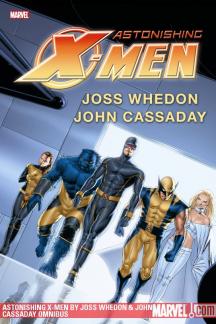

Which is grand – what would be the point of changing writers if you didn’t want a slightly different take on the story? Whedon tips his hat to his predecessor in any number of ways.

Item #6: “Do I even need to say, ‘Gayathon’?” Among the supplementary material here (which is surprisingly sparse), there’s a spoof email from Whedon in which he outlines his “Grant Morrisonesque mission statement”. Whedon seems to genuinely appreciate the thoughtful work put into the title, but respectfully decides to head another direction. It’s worth noting from the outset that Whedon seems to have a love-hate relationship with Morrison’s earlier work on the title, which seems a little odd when it appears to be pitched as something of a complementary (or even ‘sequel’) run. Sure, there were other writers on X-Men between and around Whedon and Morrison, but it would seem they are mostly ignored – be it in the narrative itself or in the supplementary material. On the other, you had Joss Whedon’s run on Astonishing X-Men, perhaps the most high-profile foray of the television god (who is responsible for Buffy: The Vampire Slayer, Angel and Firefly among others) into the comic book medium. On one hand you had Grant Morrison’s New X-Men, a mindbending and borderline revolutionary look at the franchise, its meaning and its future. However, the really fascinating stuff was happening in individual titles and individual runs. In comics, the series was launched from one gigantic crossover event to the next – House of M and Decimation come to mind, with Second Comingkicking off at the moment hot on the heels of Utopia. There was obviously the still-ongoing film series which helped launch Hollywood’s current fascination with spandex-clad superheroes, not to mention the franchise’s key role in launching Marvel’s “Ultimate” line (essentially a continuity reboot of the Marvel universe).

The last decade was an interesting one for the X-Men, long a staple of Marvel’s publishing output.


 0 kommentar(er)
0 kommentar(er)
